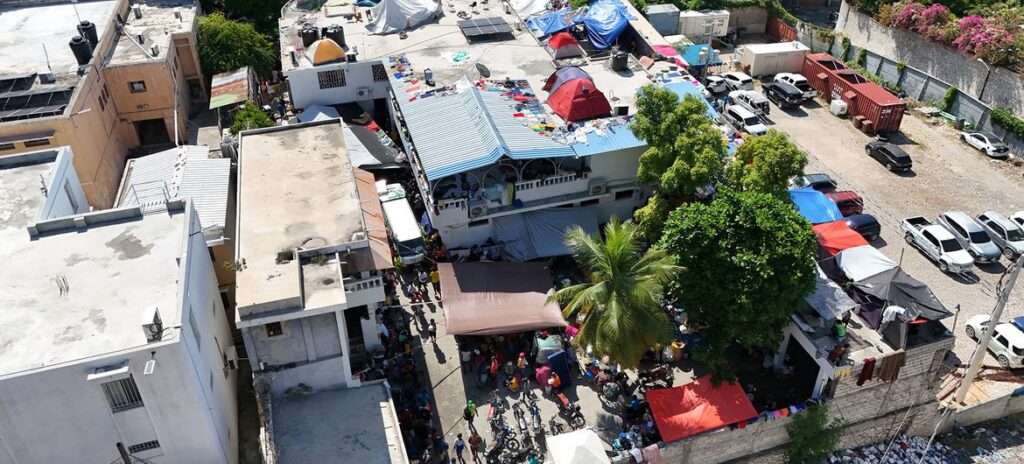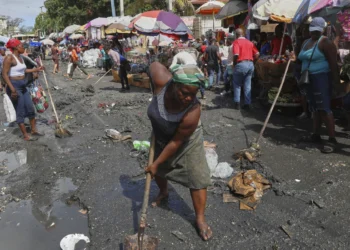A harrowing United Nations report has shed light on a massacre in Haiti’s Cité Soleil commune, where over 207 people were savagely executed by the Wharf Jérémie gang.
The joint report by the UN Integrated Office in Haiti (BINUH) and the Office of the UN High Commissioner for Human Rights (OHCHR) covers events that unfolded from December 6 to 11.
During this period, 134 men and 73 women were killed, with many of the victims being elderly individuals accused of practicing voodoo and allegedly causing the gang leader’s child to fall ill. Others fell prey to suspicions of leaking information to the media or simply trying to escape the area.
Victims were targeted in their homes and even places of worship, according to the report. After being captured, they were taken to the gang’s so-called “training center,” where they were interrogated. The ordeal culminated at an execution site, where the victims were either shot or killed with machetes in acts of unimaginable cruelty.
To erase evidence of their crimes, gang members burned the bodies, dismembered them, or discarded them in the sea.
“We cannot act as if nothing happened,” declared María Isabel Salvador, Special Representative of the Secretary-General in Haiti and head of BINUH. “I call on the Haitian justice system to conduct a thorough investigation into these horrific crimes and to arrest and punish their perpetrators, as well as those who support them.”
Salvador also emphasized the need for Haitian authorities to establish a specialized judicial unit to handle such crimes, a step she deemed critical for ensuring justice in the face of mounting violence.
The Wharf Jérémie gang has been engaged in fierce battles with rival groups for control over critical roads leading to the capital’s main port. These access routes are vital for Haiti’s economy, making them a prime target for criminal exploitation.
In addition to dominating these routes, the gang leader has imposed heavy taxes on port operators and trucking companies transporting goods. His influence has extended beyond criminal enterprises, as he has also positioned himself as a mediator for national and international entities seeking access to Wharf Jérémie residents.
The report highlights how this year alone, over 5,350 people have been killed in Haiti, with more than 2,155 others injured due to escalating violence. These numbers underscore the grave human toll of unchecked gang activity.

A Broader Crisis of Law and Order
The atrocities in Cité Soleil are part of a broader crisis engulfing Haiti, where criminal gangs, self-defense groups, and even unorganized civilians are implicated in widespread human rights abuses.
Compounding the issue, credible sources indicate potential involvement by specialized units of the Haitian National Police (PNH) in these violent acts, raising concerns about systemic failures and possible complicity.
The report also describes the dire conditions in Wharf Jérémie, where residents face constant fear and a lack of basic freedoms. The gang’s grip on the area has made it nearly impossible for humanitarian aid to reach those in need, further exacerbating the plight of the local population.
As Haiti grapples with this wave of violence, calls for justice grow louder. The international community has urged the Haitian government to take swift and decisive action to hold perpetrators accountable. This includes not only prosecuting gang leaders but also addressing the structural issues that allow such atrocities to occur with impunity.
Salvador’s call for a specialized judicial unit is one of several recommendations to restore faith in Haiti’s justice system. Observers have also stressed the importance of rebuilding institutions and fostering international cooperation to combat the root causes of violence.
READ ALSO: Kofi Kinaata’s Made in Taadi Concert Attracts Massive Fans in Grand Comeback























